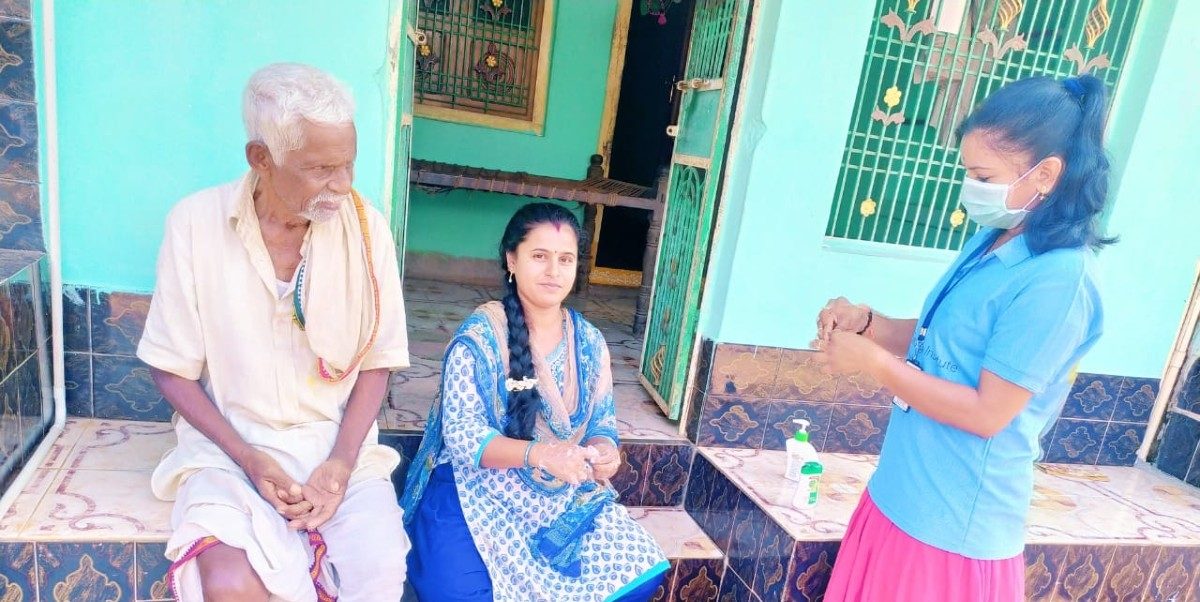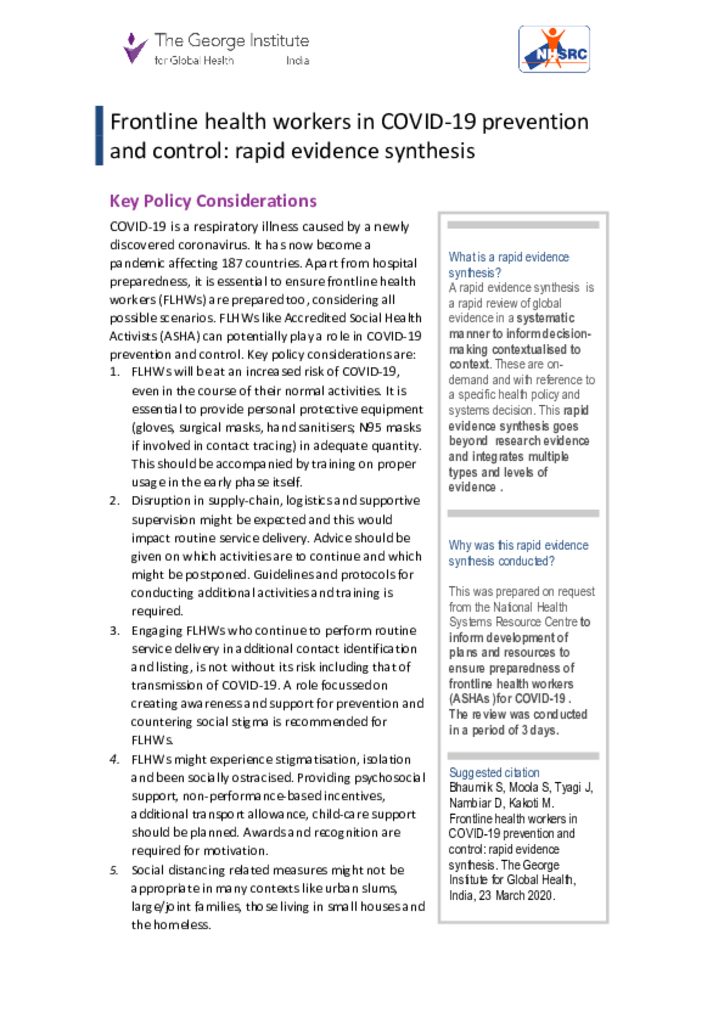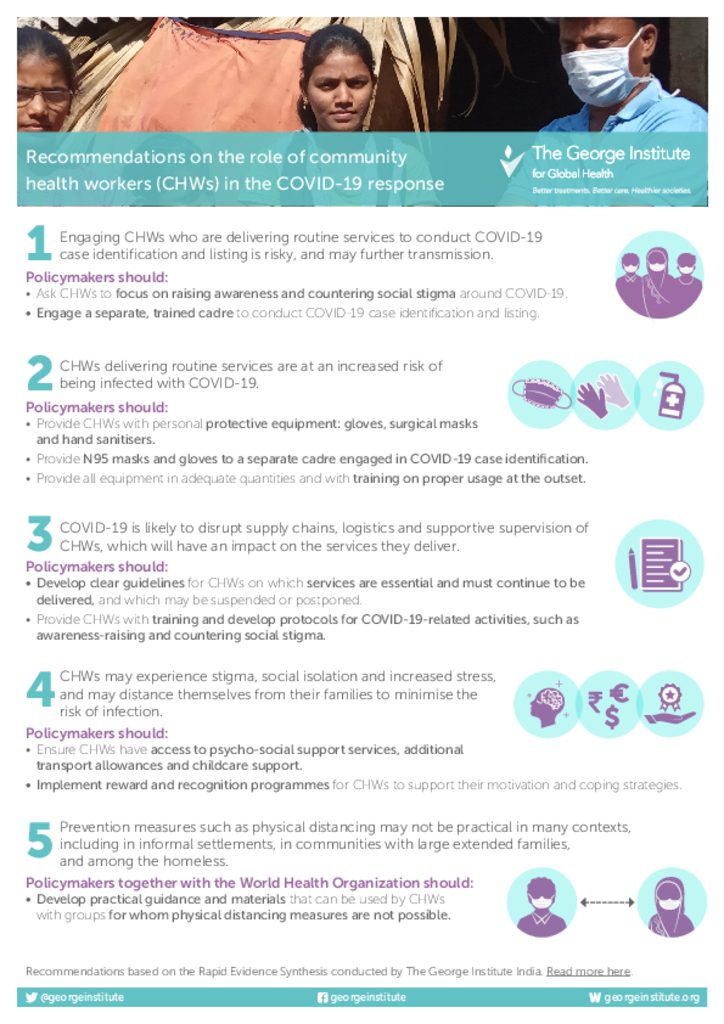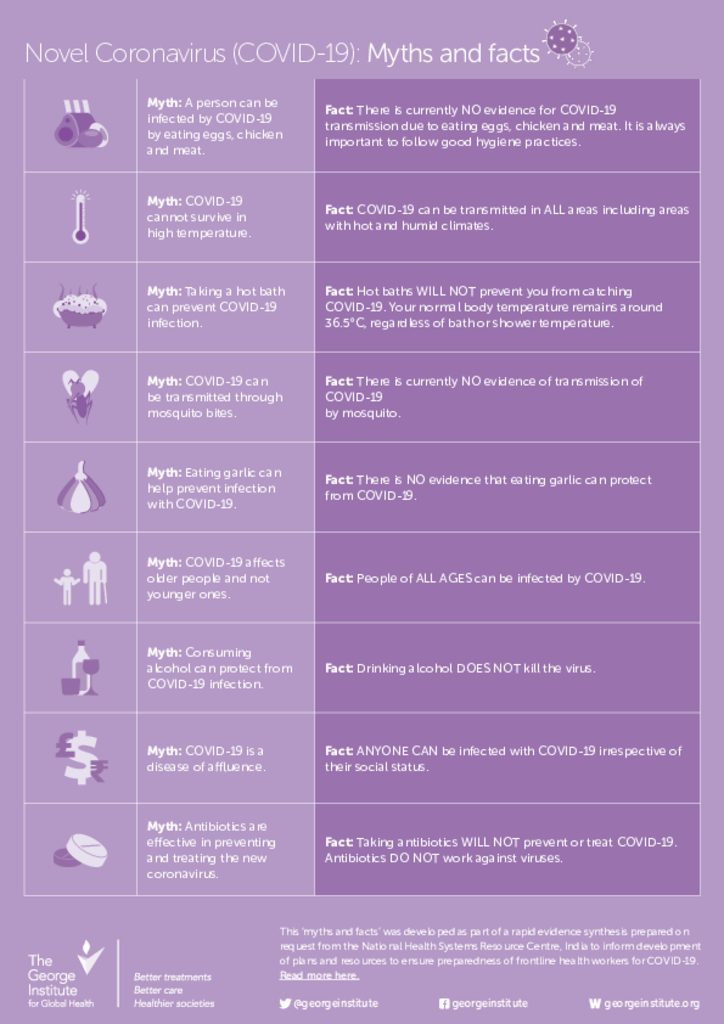
Frontline health workers in COVID-19 prevention and control: rapid evidence synthesis
COVID-19 is a respiratory illness caused by a newly discovered coronavirus was first reported in Wuhan, China in December 2019. Subsequently it has spread to 187 countries and territories with more than 294,110 cases and 12,944 deaths globally.
Countries across the world are introducing measures to prevent its spread, increasing capacity for quarantine and building capacity of hospitals (particularly intensive care units) to manage positive cases. With efforts to prevent community transmission of COVID-19 being a top priority, ensuring preparedness of frontline health workers (FLHWs) is essential.
The Government of India is embarking on a mammoth task to prevent COVID-19 spread among communities. The Rapid Evidence Synthesis team received a request to support the planning and development of resources for ensuring preparedness of FLHWs for COVID-19 . The rapid evidence synthesis was conducted in a period of three days.
The findings highlight what we can learn from recent pandemics such that we are prepared for potential scenarios and challenges due to COVID-19. Key issues which decision-makers need to consider, based on available evidence are:
- FLHWs will be at an increased risk of COVID-19, even in the course of their normal activities. It is essential to provide personal protective equipment (gloves, surgical masks, hand sanitisers; N95 masks if involved in contact tracing) in adequate quantity. This should be accompanied by training on proper usage in the early phase itself.
- Disruption in supply-chain, logistics and supportive supervision might be expected and this would impact routine service delivery. Advice should be given on which activities are to continue and which might be postponed. Guidelines and protocols for conducting additional activities and training is required.
- Engaging FLHWs who continue to perform routine service delivery in additional contact identification and listing, is not without its risk including that of transmission of COVID-19. A role focussed on creating awareness and support for prevention and countering social stigma is recommended for FLHWs.
- FLHWs might experience stigmatisation, isolation and been socially ostracised. Providing psychosocial support, non-performance-based incentives, additional transport allowance, child-care support should be planned. Awards and recognition are required for motivation.
- Social distancing related measures might not be appropriate in many contexts like urban slums, large/joint families, those living in small houses and the homeless.
The rapid evidence synthesis goes beyond research evidence and integrates multiple types and levels of evidence from across the world. The inventories provided serve as a ready resource guide for any country considering the use of FLHWs to control COVID-19.
The full rapid evidence synthesis and supporting appendices are available below
Download full report (PDF 319 KB)
Download Appendices for Frontline health workers in COVID-19 prevention and control: rapid evidence synthesis (PDF 381 KB)
Download COVID-19 myths and facts poster (PDF 607 KB)
Download Recommendations on the role of CHWs in the COVID-19 response poster (PDF 1.6 MB)
Download Community health workers for pandemic response: rapid evidence synthesis (PDF 473 KB)
This report is a part of the “Ensuring Health Systems Capacity for COVID-19 and Beyond: Evidence Series”.
The series aims to provide high quality and contextualised evidence from systematic reviews or rapid evidence synthesis to work on the opportunity the COVID-19 scenario offers i.e., to build a strong, resilient and equitable health system in India and other low and middle income countries.
External Resources
Community health workers for pandemic response: a rapid evidence synthesis - an article published in BMJ Global Health






